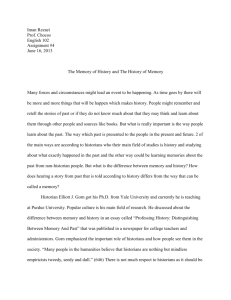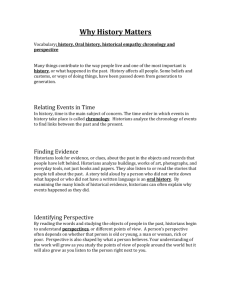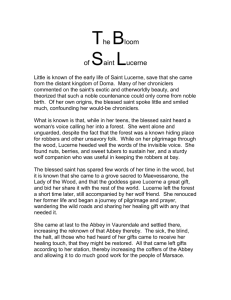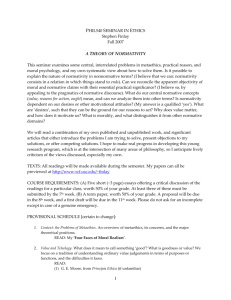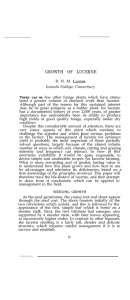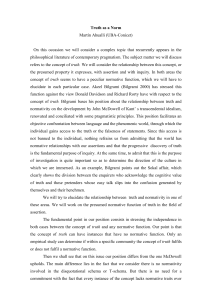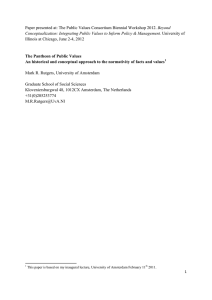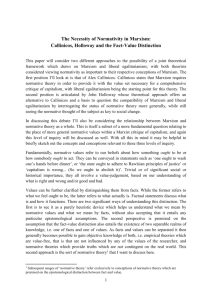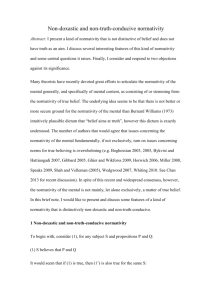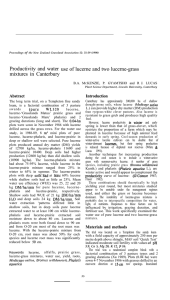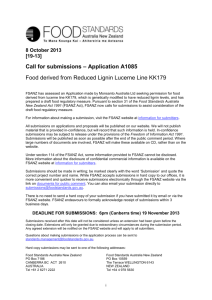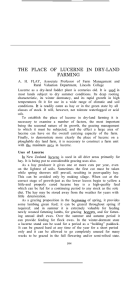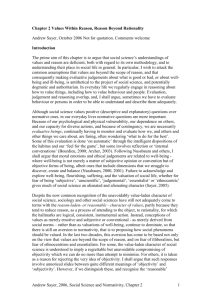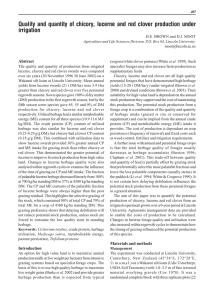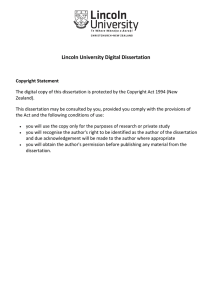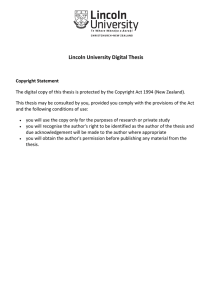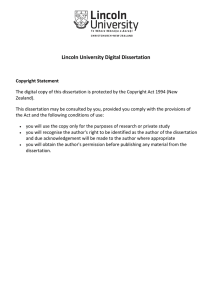Conference of Legal Historian, Lucerne – 2
advertisement
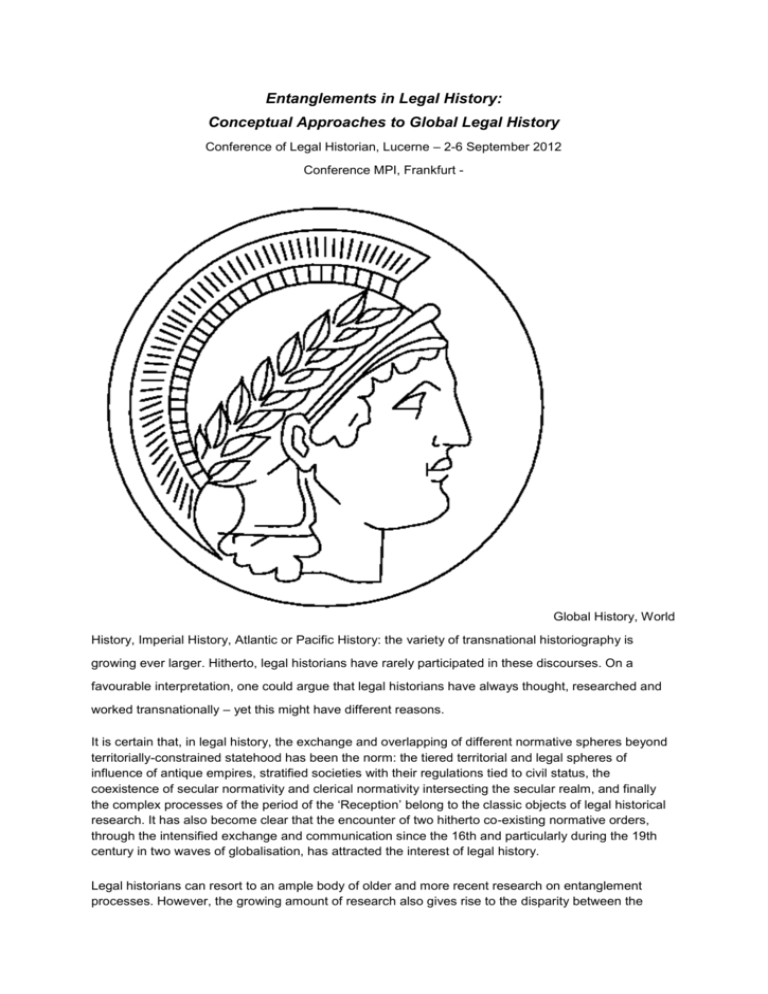
Entanglements in Legal History: Conceptual Approaches to Global Legal History Conference of Legal Historian, Lucerne – 2-6 September 2012 Conference MPI, Frankfurt - Global History, World History, Imperial History, Atlantic or Pacific History: the variety of transnational historiography is growing ever larger. Hitherto, legal historians have rarely participated in these discourses. On a favourable interpretation, one could argue that legal historians have always thought, researched and worked transnationally – yet this might have different reasons. It is certain that, in legal history, the exchange and overlapping of different normative spheres beyond territorially-constrained statehood has been the norm: the tiered territorial and legal spheres of influence of antique empires, stratified societies with their regulations tied to civil status, the coexistence of secular normativity and clerical normativity intersecting the secular realm, and finally the complex processes of the period of the ‘Reception’ belong to the classic objects of legal historical research. It has also become clear that the encounter of two hitherto co-existing normative orders, through the intensified exchange and communication since the 16th and particularly during the 19th century in two waves of globalisation, has attracted the interest of legal history. Legal historians can resort to an ample body of older and more recent research on entanglement processes. However, the growing amount of research also gives rise to the disparity between the terminology used in the description and analysis of these processes. There is a broad range of material on offer, often absorbed without major reflection. Frequently, there is a discourse on ‘reception’ without ever reaching the historiographical complexity of this concept, often reverting to terms such as ‘legal transplant’, ‘transfer’, ‘mixed legal systems’ or ‘legal pluralism’. In recent years, there have been augmented allusions to ‘mestizaje’, ‘pluralisation’ or ‘hybridisation’. In addition, there are manifold interpretations from the field of cultural sciences, such as the concept of ‘cultural translation’. In light of this, there seems to be an urgent need for a reflection on the analytical and heuristic value of such terms. It could lead to an understanding, or at the very least to a raised awareness of the images and models associated with these concepts but also of the epistemic risks inherent in the multitude of images and metaphors for the description and analysis of entanglement processes. The discussion of these questions appears all the more important given that the work of legal history does not only depend on the accuracy of its analytical instruments but that it could offer concepts developed from historic-empirical research to the discourse with other disciplines, especially vis-à-vis the legal sciences. The Max Planck Institute for European Legal History will discuss these questions within the framework of a conference in Frankfurt and a panel discussion at the 39th Rechtshistorikertag (Conference of Legal Historians) in Lucerne. Both events will take place in September 2012. We ask all interested colleagues to submit proposals for approximately 20-minute contributions to these events which deal with the analysis of the above-described questions on the basis of case studies of (legal) history. Please submit your proposals by 1 December 2011 in the form of an abstract of approximately 6,000 characters (including spaces = 2 A4 pages) in English or German. Please submit the proposals electronically (sekduve@rg.mpg.de). We will select a small number of contributions for the 39th Rechtshistorikertag (Conference of Legal Historians) in Lucerne (2-6 September 2012) and, if applicable, a larger number for a conference at the Max Planck Institute for European Legal History in Frankfurt am Main, (planned in the week of 20 August 2012) by 15 January 2012. The elaborated version of the contributions for both events should be on hand on 1 July 2012 so they can be made available to the participants of the events. A comprehensive English abstract is to be added to any German language publication. It is foreseen that selected contributions will be published after peer review. The Max-Planck Institute will provide accommodation expenses for both conferences. It may be possible to obtain financial aid or even full coverage for travel expenditures. For questions and any further correspondence, please contact Ms. Nicole Pasakarnis, Email: sekduve@rg.mpg.de. Legal Applications of Artificial Intelligence While computers have long been a fixture in the legal profession, they have mainly been relegated to back office tasks, such as billing, word processing, and other basic administrative duties. As Artificial Intelligence (AI) technology develops, the creation of computers that can autonomously reason with the law to determine legal solutions is slowly becoming a reality. Expert systems will one day be able to predict the outcome of litigation with a good degree of accuracy. An important attribute of expert systems is their ability to explain why a particular analysis or recommendation was produced. The process usually involves the assignation of numerical "weights" in relation to case facts. These facts are then computationally compared to similar cases in the expert system's knowledge base and an outcome based on the assigned values/similarities is then generated. Therefore, the possibility exists that AI will result in expert systems that could help judges produce an acceptable level of fairness without resorting to a strict model of fixed sentencing. The expert system would be normative rather than predictive, providing guidance based on complex modeling that considers the attributes of the crime, mitigating and aggravating circumstances, and the individual characteristics of the defendant. At present, expert systems of this complexity are not in widespread use. Some simple software is available that provides legal professionals with the ability to draft complex legal documents. The software works on rule based principles, which guide the lawyer through a question-and-answer session until the document is complete. These software programs typically support each question with expert legal and strategic analysis, practice tips and model language.





